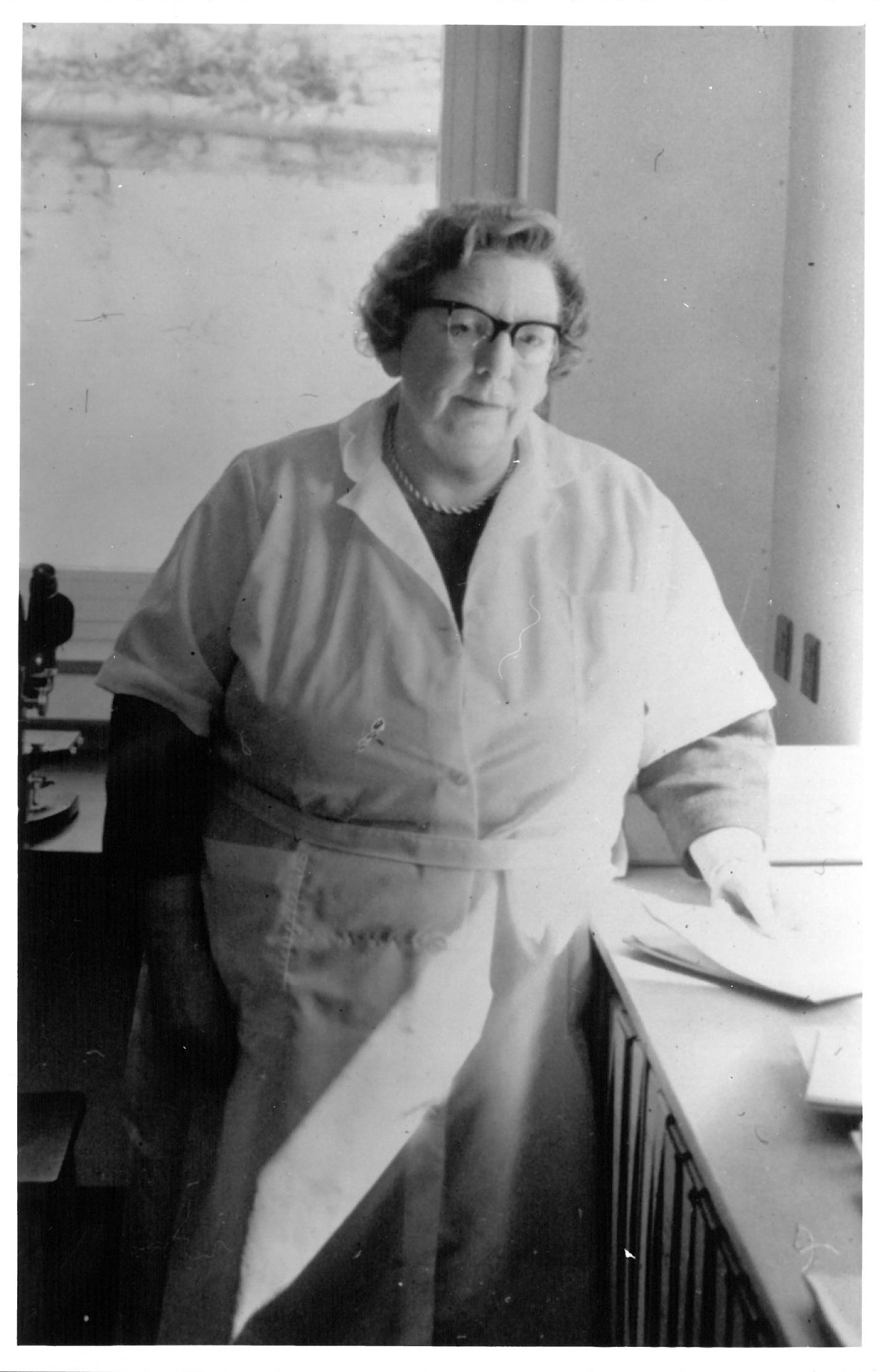Taking a look at Dr Mary Parke’s records
It may not feel like it, but spring is here and with it comes the flourishing of new life in our oceans. Spring is also a great time to visit the coast and discover what lives beneath the waves. In this way we follow the footsteps of pioneering phycologist Dr Mary Parke. She studied the planktonic algae and seaweeds of the UK, especially those of the south-west of England.
Voices of marine biology
The National Marine Biological Library (NMBL) is part of the Marine Biological Association (MBA), based at Citadel Hill in Plymouth, Devon. The MBA was established in 1884 and the Library has been part of the Citadel Hill site since its opening in 1888. 140 years of being the voice of marine biology means that the archive cared for by the NMBL holds a lot of history. This can broadly be divided into institutional records and the individual collections of MBA researchers, such as Dr Mary Parke.
The survey logs, species illustrations, and manuscripts created by Mary represent an ecological history of algal communities, locally and further afield. Information on the records we hold of Mary can be found at MBA Mary Parke archive records as well as those of other notable MBA scientists.
Biology and botany
Mary Winifred Parke was born in Bootle, Liverpool in 1908. Whilst at Notre Dame Convent, also in Liverpool, she was supported by her mother to pursue studying biology. At the time, it was not the ‘expected’ thing for young ladies to do. Although musically talented, it was biology that Mary focused on and she completed a BSc in Botany. She then went on to begin her field research at the Port Erin Marine Station in the late 1920s, gaining her PhD from the University of Liverpool in 1932. In 1941 Mary transferred to the MBA to assess the seaweed of the UK. She was later appointed as MBA Botanist in 1947.
Initially focusing on larger algae, one of Mary Parke’s early achievements was a collaboration with her supervisor Dr Margery Knight on a survey of the seaweeds of the south-east of the Isle of Man, published in 1931 as Manx Algae.

Later Dr Parke’s interests diverted into studies on the use of planktonic algae as a food source in the rearing of oysters. Many of the techniques she developed for their culturing are still used today. It was during her time at the MBA that she continued to study the ecology of algae as well as their systematics.
Kelp along our coasts
Here in the archive, we have a number of logbooks that Mary completed whilst continuing her surveys of the larger seaweeds – particularly the kelp Laminaria. This historic survey data is invaluable in helping current researchers study changes in species distribution over time and better understand ecosystem changes and their causes.

As part of the surveys, Dr Parke collected samples from the local Plymouth Sound area. Some of these are retained in the MBA’s herbarium, alongside hundreds of other specimens of seaweeds. With new and improving technologies it may even be possible to gather data from these samples, adding to our understanding of these species.

A lasting legacy
Dr Parke was also a founding member of the British Phycological Society and in tribute the MBA and BPS have historically provided a bursary to support phycologists who wished to research at the MBA.
Dr Parke’s research into kelp has also provided a lasting legacy on which to build. One of the MBA’s current research projects is using ‘green gravel’ to restore subtidal kelp habitats in the UK. By collecting and growing local kelp spores on gravel in the aquarium, and replanting them out at sea, the aim is to restore these vital kelp beds and improve coastal ecosystems.
Further information
Library Services Manager – Carol Giles
Library Assistant – Kristina Hixon
National Marine Biological Library (NMBL) National Marine Biological Library | Marine Biological Association (mba.ac.uk)
Archive records of the MBA Search results: Marine Biological Association | The National Archives
Green gravel project Innovative project aims to safeguard British kelp from potential decline | Marine Biological Association (mba.ac.uk)
Email the NMBL to find out more about the archive nmbl@mba.ac.uk
The Library’s social links – X: @thenmbluk; Instagram: @nmbllibrary
Edited by Isabel Lauterjung
